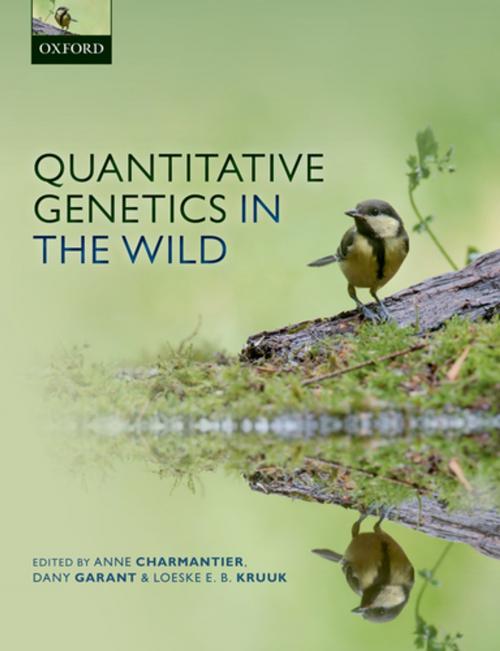Quantitative Genetics in the Wild
Nonfiction, Science & Nature, Science, Biological Sciences, Zoology, Evolution| Author: | ISBN: | 9780191655968 | |
| Publisher: | OUP Oxford | Publication: | April 3, 2014 |
| Imprint: | OUP Oxford | Language: | English |
| Author: | |
| ISBN: | 9780191655968 |
| Publisher: | OUP Oxford |
| Publication: | April 3, 2014 |
| Imprint: | OUP Oxford |
| Language: | English |
Although the field of quantitative genetics - the study of the genetic basis of variation in quantitative characteristics such as body size, or reproductive success - is almost 100 years old, its application to the study of evolutionary processes in wild populations has expanded greatly over the last few decades. During this time, the use of 'wild quantitative genetics' has provided insights into a range of important questions in evolutionary ecology, ranging from studies conducting research in well-established fields such as life-history theory, behavioural ecology and sexual selection, to others addressing relatively new issues such as populations' responses to climate change or the process of senescence in natural environments. Across these fields, there is increasing appreciation of the need to quantify the genetic - rather than just the phenotypic - basis and diversity of key traits, the genetic basis of the associations between traits, and the interaction between these genetic effects and the environment. This research activity has been fuelled by methodological advances in both molecular genetics and statistics, as well as by exciting results emerging from laboratory studies of evolutionary quantitative genetics, and the increasing availability of suitable long-term datasets collected in natural populations, especially in animals. Quantitative Genetics in the Wild is the first book to synthesize the current level of knowledge in this exciting and rapidly-expanding area. This comprehensive volume also offers exciting perspectives for future studies in emerging areas, including the application of quantitative genetics to plants or arthropods, unraveling the molecular basis of variation in quantitative traits, or estimating non-additive genetic variance. Since this book deals with many fundamental questions in evolutionary ecology, it should be of interest to graduate, post-graduate students, and academics from a wide array of fields such as animal behaviour, ecology, evolution, and genetics.
Although the field of quantitative genetics - the study of the genetic basis of variation in quantitative characteristics such as body size, or reproductive success - is almost 100 years old, its application to the study of evolutionary processes in wild populations has expanded greatly over the last few decades. During this time, the use of 'wild quantitative genetics' has provided insights into a range of important questions in evolutionary ecology, ranging from studies conducting research in well-established fields such as life-history theory, behavioural ecology and sexual selection, to others addressing relatively new issues such as populations' responses to climate change or the process of senescence in natural environments. Across these fields, there is increasing appreciation of the need to quantify the genetic - rather than just the phenotypic - basis and diversity of key traits, the genetic basis of the associations between traits, and the interaction between these genetic effects and the environment. This research activity has been fuelled by methodological advances in both molecular genetics and statistics, as well as by exciting results emerging from laboratory studies of evolutionary quantitative genetics, and the increasing availability of suitable long-term datasets collected in natural populations, especially in animals. Quantitative Genetics in the Wild is the first book to synthesize the current level of knowledge in this exciting and rapidly-expanding area. This comprehensive volume also offers exciting perspectives for future studies in emerging areas, including the application of quantitative genetics to plants or arthropods, unraveling the molecular basis of variation in quantitative traits, or estimating non-additive genetic variance. Since this book deals with many fundamental questions in evolutionary ecology, it should be of interest to graduate, post-graduate students, and academics from a wide array of fields such as animal behaviour, ecology, evolution, and genetics.















